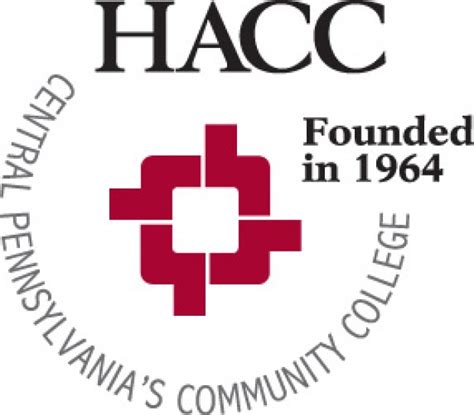The Harrisburg Area Community College (HACC) offers affordable and accessible higher education to students of all ages and backgrounds. Whether you’re just starting out on your college journey or looking to advance your career, HACC has a program that meets your needs.

Tuition Costs
Tuition and fees vary based on a number of factors, including residency, enrollment status, and program of study. In general, in-state tuition for full-time students is approximately $6,000 per academic year, while out-of-state tuition is approximately $12,000 per academic year.
For a detailed breakdown of tuition and fees, please visit HACC’s website: https://www.hacc.edu/Paying-for-College/Tuition-and-Fees.cfm
Financial Aid
HACC offers a variety of financial aid programs to help students pay for tuition, fees, and other expenses. These programs include grants, scholarships, loans, and work-study. HACC students who demonstrate financial need are encouraged to apply for financial aid.
To learn more about financial aid, please visit HACC’s website: https://www.hacc.edu/Paying-for-College/Financial-Aid.cfm
Common Mistakes to Avoid
There are a number of common mistakes that students make when it comes to paying for college. Here are a few things to avoid:
- Not applying for financial aid. Many students don’t apply for financial aid because they think they won’t qualify. However, even students from middle-income families may be eligible for some type of financial aid.
- Borrowing more than you need. When it comes to student loans, it’s important to borrow only as much as you need. Student loan debt can follow you for years after you graduate, so it’s important to be strategic about how much you borrow.
- Not making payments on time. Student loans are like any other loan, and you need to make payments on time to avoid late fees and damage to your credit. If you’re having trouble making payments, contact your loan servicer to discuss your options.
How to Step-by-Step Approach
If you’re ready to apply for financial aid, follow these steps:
- Complete the Free Application for Federal Student Aid (FAFSA). The FAFSA is used to determine your eligibility for federal financial aid. You can complete the FAFSA online at https://studentaid.gov/h/apply-for-aid/fafsa.
- Submit a HACC financial aid application. In addition to the FAFSA, you will need to submit a HACC financial aid application. You can submit the HACC financial aid application online at https://www.hacc.edu/Paying-for-College/Financial-Aid/Applying-for-Aid.cfm.
- Wait for your financial aid award letter. HACC will send you a financial aid award letter once you have been determined eligible for financial aid. Your award letter will list the types and amounts of financial aid you have been awarded.
Why Matters and How Benefits
Going to college is a big investment, but it can also be one of the best investments you ever make. A college education can open up new opportunities for you, both personally and professionally.
Here are just a few of the benefits of getting a college education:
- Increased earning potential. College graduates earn more money than people with only a high school diploma. According to the U.S. Bureau of Labor Statistics, the median annual salary for people with a bachelor’s degree is $65,660, compared to $48,370 for people with only a high school diploma.
- Improved job opportunities. College graduates are more likely to have access to a wider range of job opportunities than people with only a high school diploma. In addition, college graduates are more likely to be employed in high-paying, professional jobs.
- Increased personal growth. College is a time of great personal growth and development. You will learn new things, meet new people, and expand your horizons. College is also a time to reflect on your values and develop your own personal philosophy.
Conclusion
HACC offers affordable and accessible higher education to students of all ages and backgrounds. If you’re thinking about going to college, HACC is a great place to start.
Tables
Table 1: Tuition and Fees for 2023-2024
| Category | In-State | Out-of-State |
|---|---|---|
| Tuition | $6,064 | $12,128 |
| Fees | $906 | $906 |
| Total | $6,970 | $13,034 |
Table 2: Financial Aid Programs
| Program | Description |
|---|---|
| Grants | Free money that does not need to be repaid. |
| Scholarships | Free money that is typically based on merit or financial need. |
| Loans | Money that must be repaid, usually with interest. |
| Work-study | A program that allows students to earn money by working on campus. |
Table 3: Common Mistakes to Avoid
| Mistake | Description |
|---|---|
| Not applying for financial aid | Many students don’t apply for financial aid because they think they won’t qualify. However, even students from middle-income families may be eligible for some type of financial aid. |
| Borrowing more than you need | When it comes to student loans, it’s important to borrow only as much as you need. Student loan debt can follow you for years after you graduate, so it’s important to be strategic about how much you borrow. |
| Not making payments on time | Student loans are like any other loan, and you need to make payments on time to avoid late fees and damage to your credit. If you’re having trouble making payments, contact your loan servicer to discuss your options. |
Table 4: Why College Matters
| Benefit | Description |
|---|---|
| Increased earning potential | College graduates earn more money than people with only a high school diploma. |
| Improved job opportunities | College graduates are more likely to have access to a wider range of job opportunities than people with only a high school diploma. |
| Increased personal growth | College is a time of great personal growth and development. You will learn new things, meet new people, and expand your horizons. |
